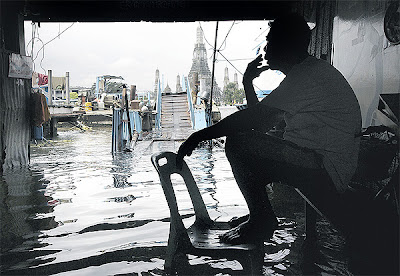I first read Martin Limon when his publisher sent me a sampler containing first chapters from a number of their authors. His work impressed me so much that I immediately went out and bought all of his books.
His next one, Mr. Kill, will be his seventh, and it's scheduled for release in December. I can't wait!
Martin has studied both Mandarin Chinese and Korean and usually sets his stories in Asia, where he spent ten years of his life.
But, today, he holds forth on something entirely different: the United States Postal Service.
Leighton - Monday
The Last Full Measure
by
Martin Limon
When I started writing I lived and died by the mail. I would send out an article or a short story to some unwary publisher and wait day-to-day for their response. For years the response was always the same: a photocopied rejection letter. One publication received so many of my short stories that when I finally received a small envelope from them stuffed with more than one sheet of paper, I figured it was a bill for all the man-hours they’d wasted reading my stories and rejecting them. Instead, it was a contract for my first published story “A Coffin of Rice” in Alfred Hitchcock Mystery Magazine.
During all those years of mailing manuscripts out and having them returned to me, I never once lost a story. In fact to this day I can honestly say that the United States Postal Service never once let me down. Still, for some reason, there are some politicians who are determined to murder the United States Postal Service. This is no mystery. Their motive is clear. They claim it is losing money.
But the Postal Service is not actually losing money, not year to year. The reason they appear to be losing money is because of the Congressionally imposed accounting requirement that they set aside hundreds of millions of dollars to fund their retiree health care benefits for seventy years in the future. That means they have to budget for people who haven’t even been born yet. And all this from a Congress that is constantly blathering on about getting government off the backs of business.
What is Congress’s real motive? We all know the answer. Their goal is to privatize the U.S. Postal Service. Why destroy such a venerable and successful institution? That answer is also clear. Because a few of their country club buddies want to form shipping companies and make fortunes charging us poor starving authors ten times as much to mail our manuscripts.
The U.S. Postal Service was established in Section 8, Clause 7 of the United States Constitution. Our founding father realized that an honest and efficient postal service was important to the growth of our nation. By enshrining a postal service in our primary legal document they thereby mandated that it should be a public utility, available to all. I’m old enough to remember when many things that are now privatized were public utilities. I remember when television was free. I remember when radio had to broadcast both sides of a political issue. I remember when telephones were plugged into walls and--miracle of miracles--they always worked.
Those days are gone. I mourn them but I cannot bring them back. But I do think it is time that Congress stop undermining the U.S. Constitution and stop trying to destroy the U.S. Postal Service. I also think it’s time people stop bad mouthing our government. One Republican president famously said that government is not the answer to the problem, but rather that government is the problem.
I prefer to quote the first Republican president. He was dedicated to the proposition that our “government of the people, by the people, and for the people, shall not perish from the earth.”
We the people must control our government and the instruments thereof and not let a few slick-talking “job creators” talk us out of what so many died to preserve. Let us not betray those men and women who “gave the last full measure of devotion” so that our government would survive. Let us not turn this cherished legacy over to corporations whose only “last full measure of devotion” is to lining their own pockets with profit, no matter how ill-gotten their gain.



































































